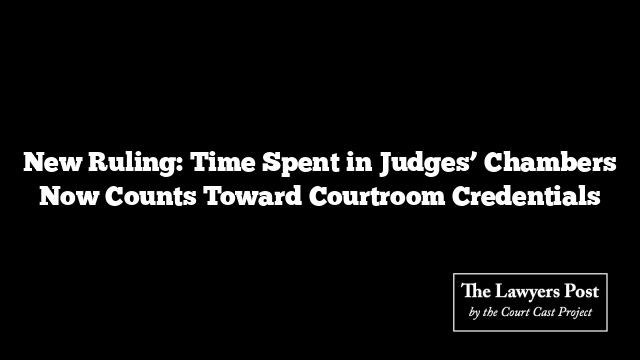In a significant shift for aspiring judges, the Supreme Court has ruled that time spent working as a judge’s law clerk can now be chalked up as courtroom experience—an essential qualification for anyone looking to don the robes as a Civil Judge (Junior Division).
Reviving the earlier requirement of three years’ legal practice to qualify for judicial service, the bench—headed by Chief Justice BR Gavai alongside Justices AG Masih and K Vinod Chandran—declared that candidates’ clerkship stints with judges and judicial officers across the country would officially count toward the experience tally.
“In calculating the required three years of legal practice, time served as a law clerk with any judge or judicial officer in the nation will be recognized,” the Court stated in a decisive order.
However, there’s a cutoff: the ruling won’t disrupt any state or High Court recruitment processes already in motion. The experience mandate will apply only to future rounds of judicial appointments.
The Court didn’t mince words about why this change was needed. It highlighted two decades of complications stemming from letting fresh law graduates leap straight into the judiciary without setting foot in a courtroom.
“For 20 years, appointing new graduates with no real-world legal practice has proven less than effective,” the judgment noted. “These officers, fresh off campus, are immediately tasked with decisions affecting people’s liberty, property, and reputations. That kind of responsibility demands more than textbook knowledge or a crash course in procedure.”
What’s missing, the Court stressed, is firsthand familiarity with the legal system in action—watching seasoned lawyers argue, understanding the nuance of a judge’s role, and absorbing the rhythm of courtroom life.
Backing the majority opinion of High Courts across the country, the Supreme Court concluded that practical experience—whether in advocacy or through judicial clerkship—is non-negotiable. “The intricacies of being a judge cannot be grasped in theory alone,” the Court affirmed.
In short: if you want the gavel, get your hands dirty—whether in the pit of a courtroom or the quiet crucible of a judge’s chambers.




